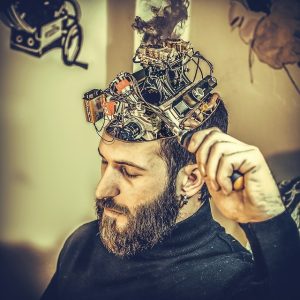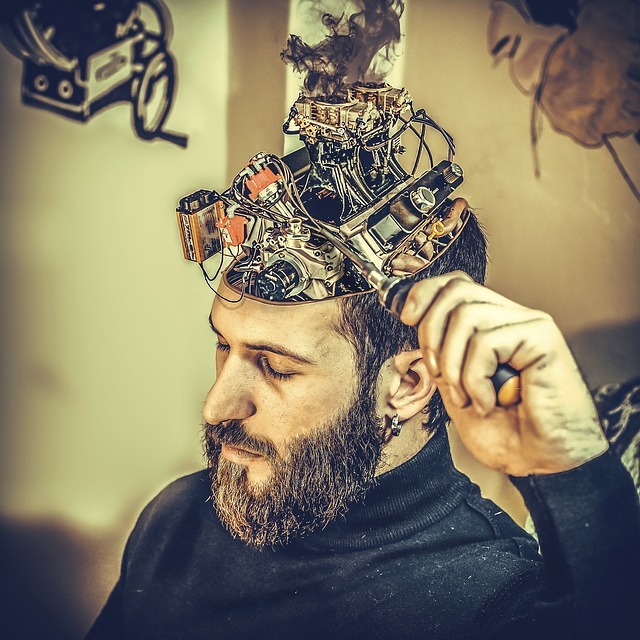 Active addiction blew my mind. It blew out my nervous system in much the same way as it disconnected me from others, my spirit, and my core. This is a true fact. Whether you have been addicted to a substance or a behavior addiction hijacks your nervous system and can bring real harm to how you process information and feelings. It did for me.
Active addiction blew my mind. It blew out my nervous system in much the same way as it disconnected me from others, my spirit, and my core. This is a true fact. Whether you have been addicted to a substance or a behavior addiction hijacks your nervous system and can bring real harm to how you process information and feelings. It did for me.
Without getting too geeky on the biology and neurology of addiction just know that addictive behavior (gambling, using tobacco, dependent relationships) all trigger the same brain sequence that healthy pleasure does. We enjoy food, rest, contact with others, play and creative activities. This is proper and, in fact, critical to maintaining the species! The trouble comes when we focus on one or another of these sensations and it grows out of proportion to the balance that is healthy for us. We may learn to use a substance or a relationship that cues this pleasure center over and over again to soothe us, to entertain us, to give us a feeling of security or safety.
I grew up in a home of turmoil and uncertainty. My mom was an alcoholic and my dad had mental health issues. We experienced prolonged periods where my parents were unemployed. We moved often. There was rage and shame and discomfort. I also lived to please and placate my parents. I felt joy if they were happy, I felt at ease when they were calm, I adapted my choices and preferences to what I know would please them. My brain was trained at an early age to judge my own feelings by the expression, the behavior, the approval of others. It wired that way. The circuits of my nervous system developed singular tolerances: they remained intact when others were happy; they blew when others were not happy. This was not sustainable. Some people stay in this loop. Some people search for other ways to find pleasure; eating, smoking, drinking, drugs. I “chose” booze and drugs.
For a while intoxicants kept my system regulated, habituated to a new norm. Now the high replaced regular eating, regular friends, regular rest. Even creative activities now adapted themselves to the possibility for drinking and using and were not appreciated by themselves. Who would go to a concert sober? What would I “take” to make Disneyland more enjoyable? How could I go to a party straight? Impossible. My system just didn’t recognize being sober anymore.
There came a time when I could no longer do anything clean or sober and I was using so much there was very little I could do at all in my preferred condition. I became anxious, paranoid, withdrawn, unsociable. All my energy was concentrated in maintaining a semblance of normalcy. I did this by making my world smaller. I restricted my exposure to people who were in a similar condition; loaded to the gills or hungover. I could no longer make reasonable connections between rational thought and my feelings. I was barely able to function in society. I was constantly shaking, quivering from the inside out, a truly reduce ability to respond to others and strangers terrified me.
My circuits were blown.
Early recovery was not a lot better. Shaking and uncertain I had to slowly put one foot in front of the other. The anxiety of being around others was still there. Shaking and nausea were still a part of daily life for several months. I didn’t know how to feel or to express the few emotions I was able to recognize. My brain had to cool off. I needed repetitive behavior to rewire and reset my system.
90 meetings in 90 days was a start. All the advice that we hear in the rooms has a secondary benefit to just helping us to find community. It is practice in listening, speaking, finding commonality in our stories, being able to identify emotions in ourselves as they are described by others. In this process I was able to calm and begin to find pleasure again in healthy ways. The sight of a sunset, the taste of a meal, the feeling of gratitude, the enjoyment of a pleasant word and a smile of recognition.
If addiction is a process that blows the circuits of our brain, and recovery can help rewire it, how can I tell if I am off beam, if I am in danger of losing my emotional sobriety? (And this is where the yoga comes in.) I have a GFI switch. I have a ground fault interrupter button that I am now aware of. Grounding is that wire, that connection to the earth that keeps the energy, the current stable. An interruption of that grounding is a fault. If that grounding, my being grounded, fails, my breath will tell me. My breath is that switch that will flip if I am losing my balance, losing my connection to my inner elf, my higher power, my ethics and values. Every time I make a bad decision I can recall my breathing at the time: it was either fast and shallow or I was holding my breath, guarding against inner wisdom or a choice I did not want to make. Every Time. I did not listen to my GFI and I went with the blown circuit of self will.
What do you use as a GFI to keep you in connection to the real you, you want to be? How to you keep your energy source regulated? How do you avoid blowing your circuits and overloading your system? Every day is a good day to be aware of this process; the holidays especially so when expectations may be higher, when the concept of who we please becomes more and more vague. Being hungry, angry, lonely or tired can impact how your current flows. Check in – see how you are breathing, drop those shoulders down, and see if you can repair your circuits in a healthy way.



2 Comments
Love your article. I can so relate. This got me to thinking what I use to stay grounded. I’m very early in recovery, so I’m in the process of, again, learning who I am, what I want to be. Thank you for sharing.
welcome back! Yes – being grounded is the most vital part of every day- and the rest of recovery blossoms from being “planted”. You are on the right path- uncovering who we really are; before the harms, the adaptation, the adjustments, is a lifelong journey well worth the effort (IMHO). Thank you for checking in!